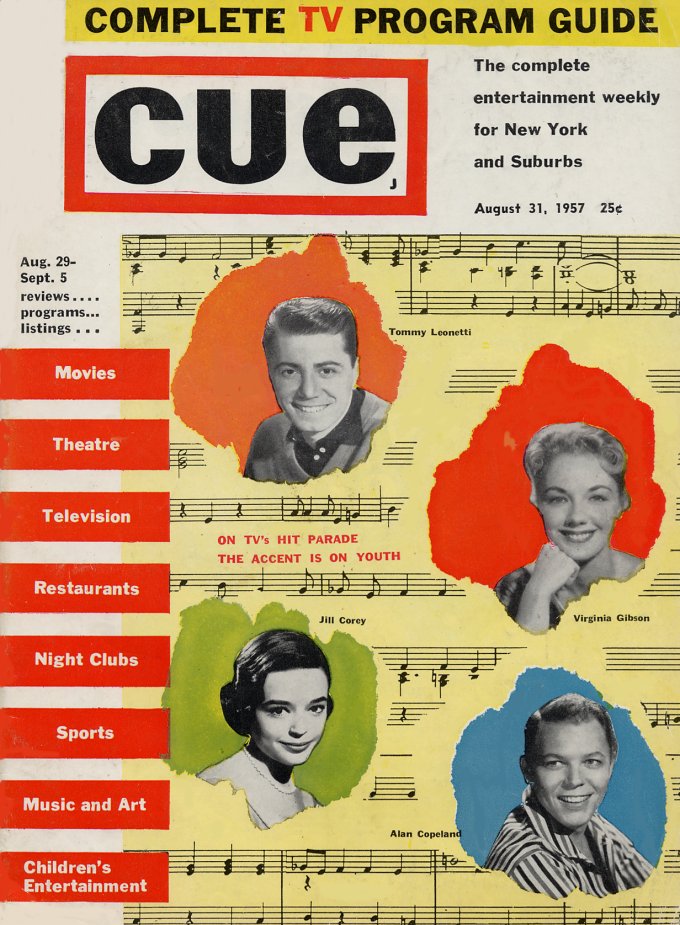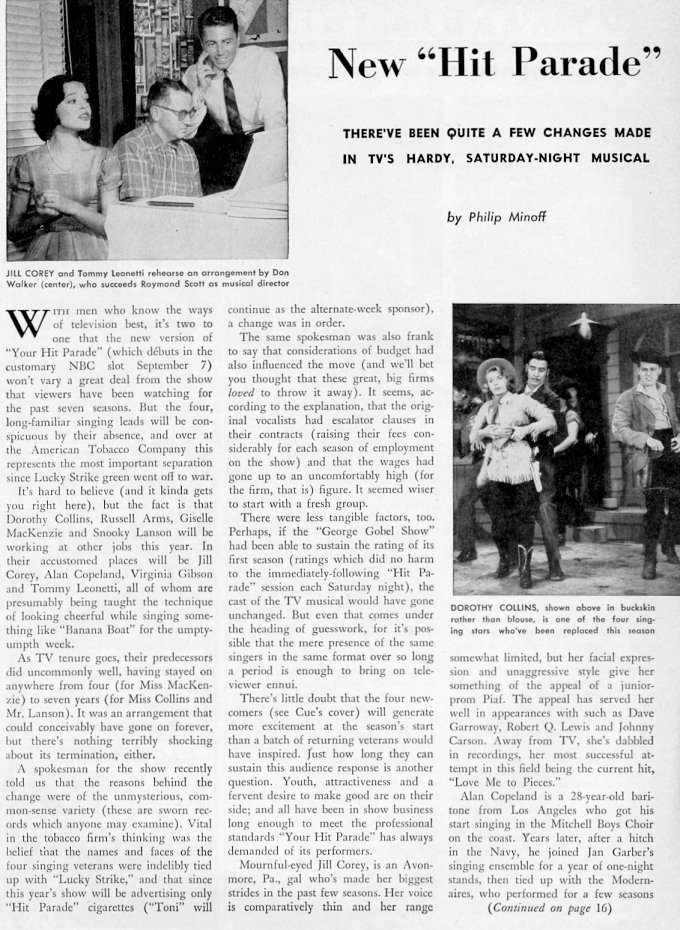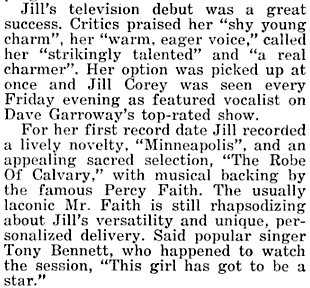| Editor's
Note: We are at a loss to explain just what singer
writer Philip Minoff was actually describing above, but it is certainly
not the Jill Corey we know when he says . . . "Her voice is comparatively
thin and and somewhat limited." We have in our collection every
recording Jill has ever made, and we have heard them all many times over.
If anything, Jill Corey is the exact antithesis of the writer's description
and certainly the most versatile singer to emerge during the decade of
the 1950's. With the able arrangements of Glenn Osser she recreated
an entire series of sprightly 1920's era tunes with a youthful exuberance
and panache that leave the original versions well in the dust. In
the song That's All I Need Jill can match the great Sinatra
at his swingin'est, while in Wait for Tomorrow she demonstrates
that she is fully capable of assuming the role of the sultry, smokey-voiced
chanteuse. Although naturally a mezzo, in a simple novelty tune like
Ching-Ching-a-Ling Jill soars to a lyric soprano of crystalline
purity. At the close of the 50's Jill even made a brief excursion
into the repertoire of traditional country, and had she continued in that
direction, we might today have more than just Patsy Cline to revere as
an icon from that era in the genre.
Before
resting my case and returning you to the conclusion of the Cue magazine
article, please simply read the following excerpt from the May 1957 issue
of Song Hits magazine for some corroborating expert
opinion.
|





